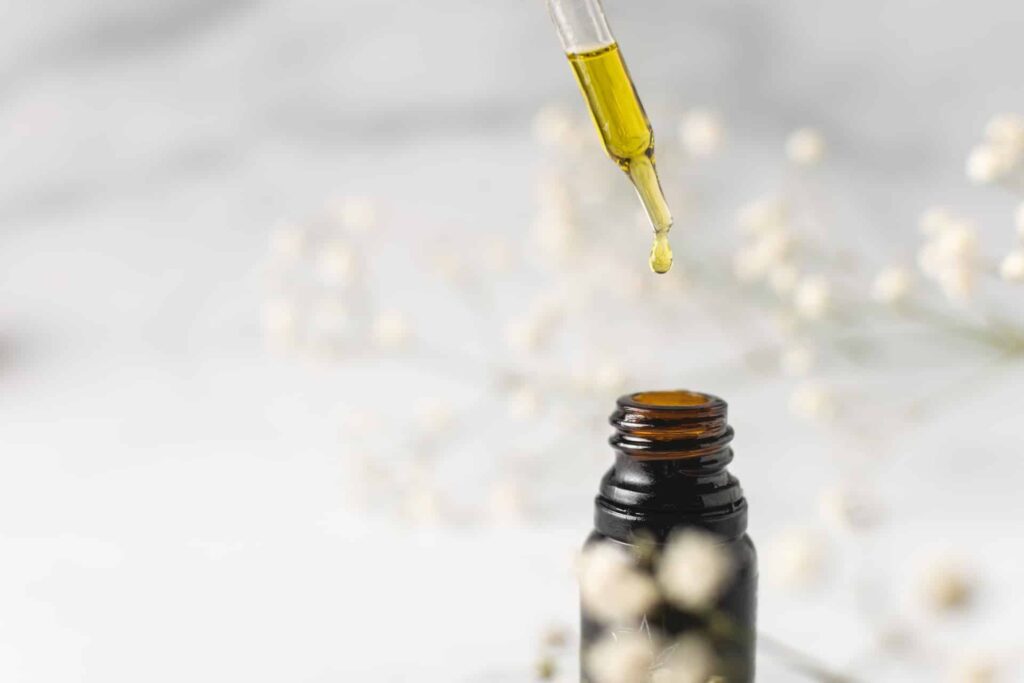
CBD oil has gained immense popularity in recent years thanks to its potential therapeutic effects and non-psychoactive nature. As more people incorporate CBD products into their wellness routines, questions about the taste of CBD oil are becoming increasingly common. Understanding the flavour profiles of CBD oil, how plant compounds and carrier oils impact the taste, and what a good CBD oils should taste like can help users make more informed decisions about their purchases.
The taste of CBD oil is primarily influenced by the plant compounds it contains. These compounds are responsible for the unique flavours and scents of different CBD products. The three primary factors that contribute to the taste of CBD oil are:
Terpenes are aromatic compounds in various plants, including cannabis. These naturally occurring compounds give each cannabis strain its unique scent and flavour. Depending on the terpene concentration in a CBD oil, it may have a more fruity, floral, earthy, or piney taste.
Cannabinoids, such as CBD and THC, are the primary active compounds in cannabis plants. They are responsible for the therapeutic effects of CBD oil. While CBD itself has a mildly bitter and earthy taste, other cannabinoids may also impact the overall flavour of the oil.
Chlorophyll is the pigment that gives plants their green colour. It is typically present in full-spectrum CBD oils containing all the plant’s natural compounds, including cannabinoids, terpenes, and chlorophyll. This green pigment can leave the oil slightly bitter and grassy taste.
Another significant factor influencing CBD oil’s taste is the carrier oil used to dilute the CBD extract. Carrier oils are essential in CBD products, as they help enhance the bioavailability and absorption of CBD in the body. Common carrier oils used in CBD products include:
MCT oil is derived from coconut oil and is known for its neutral taste. It is one of the most popular carrier oils for CBD products, as it doesn’t overpower the natural flavours of the plant compounds.
Hemp seed oil is derived from the hemp plant’s seeds and has a nutty and earthy taste. This carrier oil can complement the natural flavours of CBD oil, creating a well-rounded taste profile.
A high-quality CBD oil should have a complex and balanced flavour profile, with the natural plant compounds shining through. While some users may find CBD oil’s taste mildly bitter and earthy, others may enjoy the unique combination of terpenes and carrier oil flavours.
The taste of CBD oil can also indicate its quality. A strong, unpleasant, or chemical-like taste could indicate a low-quality product or impurities in the oil. Good CBD oils should have a clean and natural flavour, reflecting the purity of the extraction process and the absence of contaminants.
The taste of CBD oil is a symphony of plant compounds influenced by the terpenes, cannabinoids, chlorophyll, and carrier oils present in the product. Understanding the flavour profiles of CBD oil and what a good-quality oil should taste like can help users make better choices when selecting CBD products for their wellness routines. Ultimately, personal preferences will dictate which CBD oil flavours are most appealing, but being informed about the factors influencing taste can lead to a more satisfying and enjoyable experience.
Experience the benefits of good CBD oils today! Shop the best UK-made CBD oil & e-liquid from Canavape. Our products are manufactured in our UK-based lab, ensuring consistent quality and purity. Rest easy knowing all our CBD oils are THC-free, making them perfect for those looking for the therapeutic benefits of CBD without the psychoactive effects. Shop now!
Please note: This blog post reflects historical data predating recent changes in cannabinoid laws, medical cannabis regulations, and some of our best CBD product names, strengths, and formulations. These historical blogs remain as a reference post our website update, but they might contain outdated information. Discover our updated CBD and legal cannabinoid products for the best CBD experience.